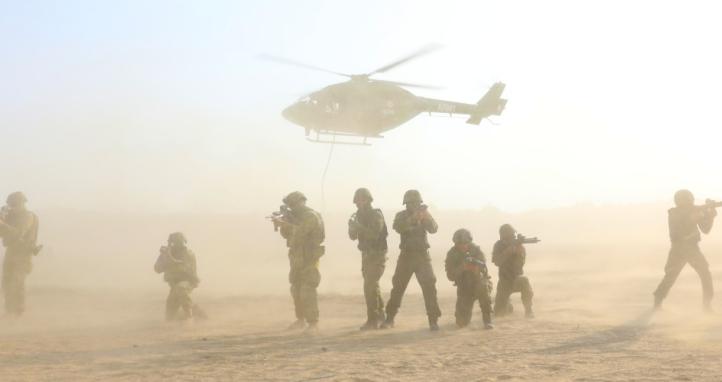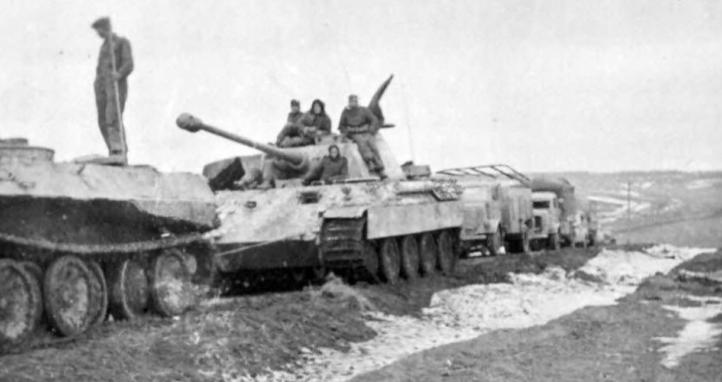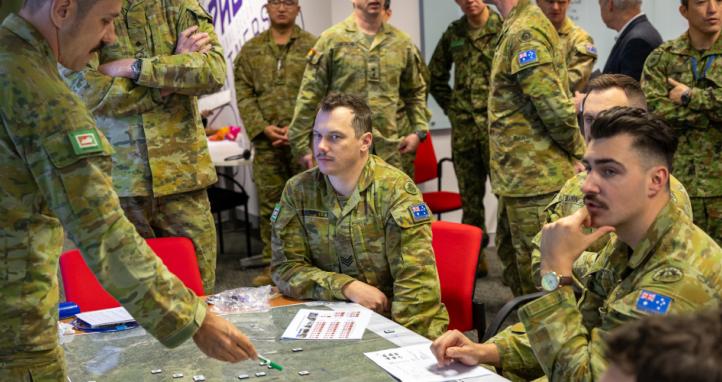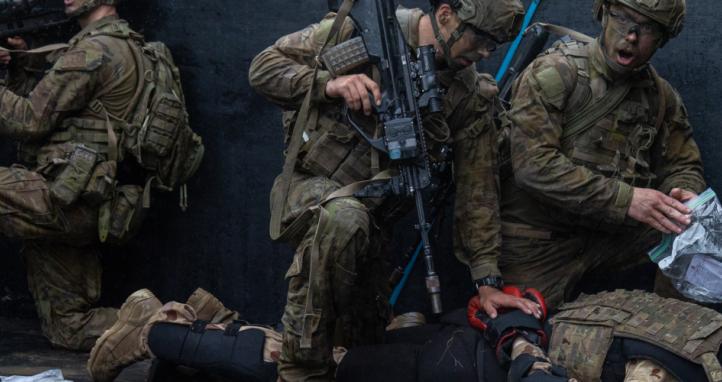Introduction
The Defence Strategic Review (DSR) was a call to action, providing strategic guidance towards significant increases to Defence capabilities. It recognised the increasingly unstable Indo-pacific region and the uncertain futures that may well shift the present global order. The DSR stated bluntly that we have seen ‘the return of major power strategic competition, the intensity which should be seen as the defining feature of our region and time’.
This strategic competition doesn’t exist in only open conflict, it also exists in more subtle ways. Recently, Andy Maher wrote on the key lessons Eastern Europe has been learning through their resistance to coercion by an autocratic foreign power. We need not learn these same hard lessons through having to experience them ourselves, instead we can learn from the experiences of others by studying them.
The Basis of a ‘Plan B’
The plan B term is used here not to describe any actual planning or plan, rather it is a label for a potential train of thought over a concept that could be openly considered. In that context what Andy Maher is referring to is Resistance. Such a topic has been widely and openly considered by the Americans and Europeans together in the Resistance Operating Concept. It defines resistance as:
a nation’s organised, whole-of-society effort, encompassing the full range of activities from nonviolent to violent, led by a legally established government (potentially exiled/displaced or shadow) to re-establish independence and autonomy within its sovereign territory that has been wholly or partially occupied by a foreign power.
Importantly, such a definition refers to a whole-of-government and whole-of-nation effort. Whilst it is attractive to be drawn to the romantic image of partisan resistance fighters such as Nancy Wake during WW2 it is more helpful to consider that such a consideration is just as much about resilience. This need for resilience is called out in the DSR itself as a ‘business as usual approach is not appropriate’. What resilience means here is more robust supply chains, assured logistics, robust personnel capabilities. Strengthening these areas means mitigating
fragilities so that their systems are less prone to coercion, able to absorb shock, adapt and
continue with as little interruption as possible.
Additionally, when we think about Australia’s crucial strategic interest we must continue to keep in mind that other nations are involved. Therefore, it continues to be in Australia’s strategic interest to ensure that like-minded partners and allies in our near region continue to be resilient to coercion.
Army’s Place in National Strategy
So what is Army’s role in Andy Maher’s possible ‘plan B’? Is it just Army working independently? Well, of course not! If it is to be whole of nation outcomes, then collaboration is needed across departments, agencies and even de-confliction with non-government groups We can do more to understand how we could contribute to the Whole of Australian Government team.
To understand more on how the Australian Army could think about this topic the 2nd (Australian) Division will host the next CoveTalk by Andrew Maher, a PhD candidate who also lectures with UNSW-Canberra, Arizona State University and the Modern Warfare Institute. Andy will commence his prepared remarks in-person from 1630h (AEDT) at the Randwick Barracks Officers Mess. All military personnel and Defence civilians with access to Randwick Barracks are welcome to attend in person. For those who cannot attend in person it will be live streamed via the Cove website and via the Cove’s social media. A link to the video of the presentation will later be added to this post.
This is the second instalment for the 2024 edition of the 2 Div PME Series Professional Military Education program, delivered in partnership with the Australian Army Research Centre, The Cove and the Randwick Barracks Officer’s Mess.
About The Presenter
Andrew Maher is an Australian chief of army scholar and a lecturer with the University of New South Wales (UNSW) Canberra on irregular warfare. He holds fellowships with UNSW Canberra’s School of Humanities and Social Sciences and Charles Sturt University’s terrorism studies program. He is a doctoral candidate examining the strategy of proxy warfare. He has served in the Australian Army through multiple deployments to Afghanistan and Iraq, and has held multiple command appointments alongside staff, training, and operations roles. He has bachelor’s degrees in civil engineering and human resource management from the University of Southern Queensland and a master’s degree in defence studies from UNSW Canberra.
You can find Andy Maher’s Biography from the Modern Warfare Institute Website here.









